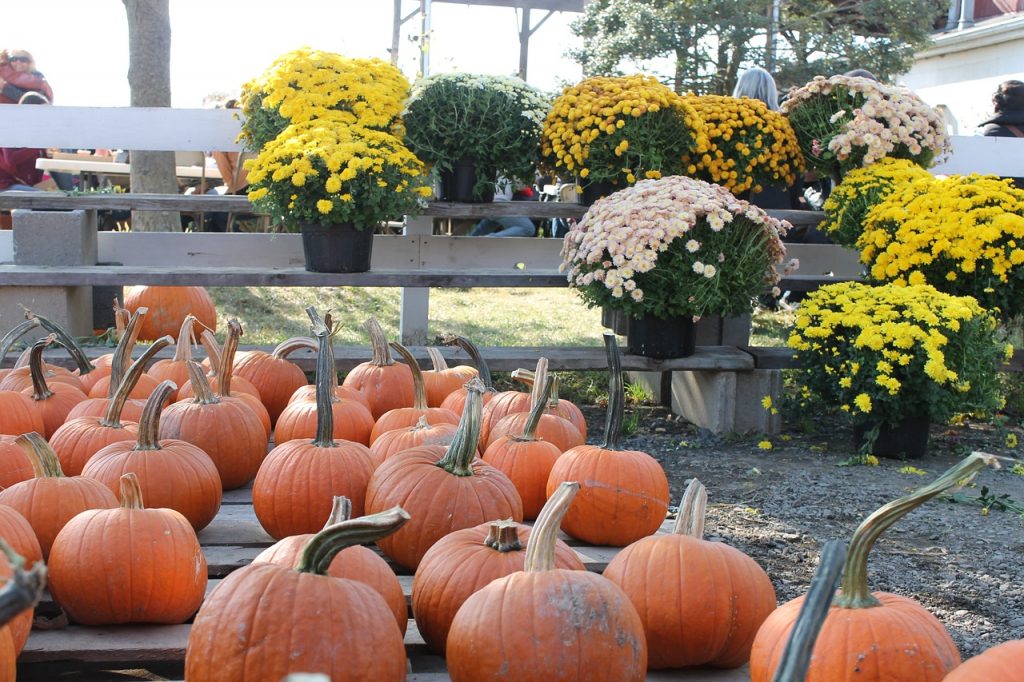
Bugs have a place in the world. I’d prefer them to find someplace besides my fall garden as their full-service dining and rest area. Wilted runners and leaves on the pumpkins and mums are a typical sign that unwelcome insects have dropped in for a snack, harming the plants in the process. There is an assortment of ways to safely deter pests without harming people, pets and plants.
Companion planting
Arrange your garden with companion crops and flowering plants to naturally discourage insects from munching. The organic pesticides found within chrysanthemums protect crops from bugs and add beauty to the garden. Mingle mums with the other plants and around the edge of the garden to keep bugs out.
Send aphids and fleas scampering by growing onions and garlic. Mix lavender plants in your garden area to discourage visits from mosquitoes, moths and fleas.
Natural bug enemies
Natural enemies like birds and wasps usually control loopers, armyworms, and other unwanted caterpillars and insects that deposit their eggs on the underside of the leaves. Plants are harmed and destroyed as larvae eat and infest leaves, flowers, and pumpkins.
Additional ways to control and deter bugs from pumpkins and mums include targeted biological control. One example, Bti (Bacillus thuringiensis), is an organically acceptable toxin designed to kill specific insects. Just spray it on to regain control of the garden. Botanical deterrents like turmeric are safe and simple to apply. Pests and ants disperse quickly when the powder is sprinkled around plant leaves and bases. Steep fresh turmeric in a bottle of water. It’s just like making sun tea, but is used to deter bugs by spraying plants.
Armyworms and caterpillars, including loopers, are fond of snacks like garden mums. Loopers eat nearly anything above the surface, including stems, buds and flowers, and leaves. Larvae starts feeding on the mums as soon as they hatch and don’t stop until they enter the pupa stage. Bti and fluvalinate are effective insecticides.
Picking adult beetles and caterpillars off by hand and destroying them keeps the egg count down. Striped and spotted cucumber beetles spread bacteria on pumpkins, squash and cucumbers. It causes bacterial wilt on the leaves, stunts plant growth, and scars most of the produce surviving the infestation.
Apply an effective insecticide to keep fall garden mums and pumpkins safe from bugs like western and eastern flower thrips. They scar the flowers as they feed on leaves, buds and other parts of the plants with piercing motions. Thrips also transfer a virus that causes leaves to yellow and slows plant growth. This tiny, pale predator hides deep within the plant during the heat of the day, making it hard to detect until the plants are damaged.
Maintain your fall garden properly by removing clippings and other debris. With nowhere to hide and feed, unwanted, destructive bugs will go elsewhere to find a home.
